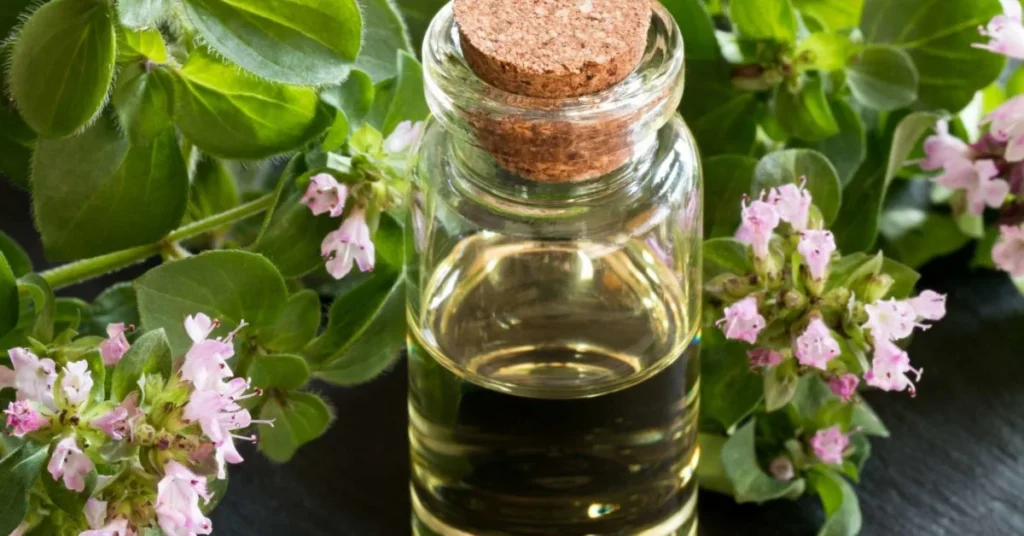Oil of oregano has been used for centuries as a natural remedy for a variety of ailments. It is commonly used to treat colds, flu, and other respiratory infections. Oil of oregano is also known to be effective in treating pain, inflammation, and headaches. Some potential side effects of the oil oregano include stomach upset and skin irritation.
What is oil of oregano and what are its health benefits and side effects?
Oil of oregano is a potent essential oil that is extracted from the leaves and flowers of the oregano plant. It contains several compounds, including carvacrol, thymol, terpinene, and pinene. These compounds are responsible for its numerous health benefits. Oil of oregano has been used for centuries to treat respiratory infections such as coughs, colds, and flu.
Research has shown that oil of oregano has powerful antibacterial and antiviral properties that can help fight off infections caused by bacteria and viruses. It has also been found to be effective in treating fungal infections such as candida overgrowth. Additionally, oil of oregano can help boost the immune system by stimulating the production of white blood cells.
Despite its many health benefits, there are some potential side effects associated with oil of oregano use. The most common side effect is digestive upset such as nausea or diarrhea. It may also interact with certain medications such as blood thinners or diabetes medications. Pregnant women should avoid using oil of oregano as it may stimulate contractions in the uterus leading to premature labor. As with any natural remedy, it is important to speak with your healthcare provider before using oil of oregano to ensure that it is safe for you to do so.
What are the health benefits of oil of oregano?
Oil of oregano is derived from the leaves and flowers of the oregano plant, which is native to Europe, Asia, and the Mediterranean. This oil contains a high concentration of two compounds – thymol and carvacrol – that have powerful antioxidant properties. These compounds help protect your body against free radical damage, which can lead to chronic diseases like cancer.
Research has shown that oil of oregano has antibacterial properties that can combat harmful bacteria like E.coli and Salmonella. This makes it an effective natural remedy for digestive problems like diarrhea and food poisoning. The oil also has antifungal properties that can help treat yeast infections like Candida albicans.
In addition to its antibacterial and antifungal properties, oil of oregano has anti-inflammatory effects that can reduce pain and swelling in conditions such as arthritis. It may even have potential as a natural treatment for allergies due to its ability to reduce inflammation in the body. Overall, incorporating oil of oregano into your diet or supplement routine may provide numerous health benefits for your overall well-being.
What are the side effects of oil of oregano?
Oil of oregano is a natural remedy that has been used for centuries to treat a variety of ailments. However, like all-natural remedies, it does come with side effects. One of the most common side effects is gastrointestinal distress, including stomach pain, diarrhea, and nausea. This can be particularly problematic for those who have sensitive stomachs or digestive issues.
Another potential side effect of oil of oregano is allergic reactions. Some people may experience itching or swelling in their mouth and throat after taking oil of oregano. Additionally, topical use can lead to rashes or other skin irritations in some people.
Finally, oil of oregano has been known to interact with certain medications such as blood thinners and diabetes medications. Therefore, if you are on any prescription medication it’s important to speak with your healthcare provider before using oil oregano as part of your treatment plan.
Overview: What are the side effects of oil of oregano and how do they compare to other products?
Oil of oregano is a popular natural remedy that has been used for centuries to treat various health conditions. However, like any other product, it may have side effects that you should be aware of before using it. Some of the common side effects of oil oregano include stomach upset, diarrhea, and allergic reactions.

Compared to other products such as antibiotics and antifungal medications, oil oregano is generally considered safe when used in recommended doses. However, it may interact with certain medications such as blood thinners and diabetes drugs. It is important to talk to your healthcare provider before taking oil oregano if you are on any medication or have any pre-existing medical conditions.
In conclusion, while oil of oregano has many health benefits, it can also cause some side effects that should not be ignored. Always use this product under the guidance of a healthcare professional and follow the recommended dosage instructions carefully.
The science: What studies support the health benefits of oil of oregano?
Numerous studies have been conducted to investigate the health benefits of the oil oregano. Research shows that oil of oregano is a potent natural antibacterial, antiviral, and antifungal agent that can help fight infections. One study published in the Journal of Applied Microbiology found that oil of oregano was highly effective against Staphylococcus aureus bacterial strains, including those that are antibiotic-resistant.
Another study published in the journal Phytotherapy Research found that oil of oregano has strong antiviral properties and may be effective in treating respiratory infections caused by viruses. Additionally, research suggests that oil of oregano may also have anti-inflammatory properties and could potentially help reduce inflammation throughout the body.
Overall, while more research is needed to fully understand the health benefits of oil of oregano, current studies suggest that it may be a useful natural remedy for fighting infections and reducing inflammation. However, it is important to note that like any supplement or herbal remedy, there are potential side effects and risks associated with using oil of oregano. It is always best to consult with a healthcare professional before starting any new supplement regimen.
Summary
Oil of oregano has been used for centuries as a natural remedy for various ailments, including respiratory infections and digestive issues. It is extracted from the leaves of the oregano plant and contains high levels of antioxidants and antimicrobial compounds. These properties make it an effective treatment for colds, flu, sinus infections, and even fungal infections like candida.
However, there are also potential side effects to be aware of when using oil of oregano. Some people may experience gastrointestinal discomfort or skin irritation when applying it topically. It can also interact with certain medications such as blood thinners or diabetes medications. As with any natural remedy or supplement, it’s important to consult with a healthcare professional before use to ensure safety and effectiveness.
Overall, oil of oregano can be a beneficial addition to one’s health regimen but should be used with caution and under proper guidance from a healthcare provider.
Conclusion: Is oil of oregano worth taking for health benefits?
oil of oregano has various potential health benefits due to its active compounds such as carvacrol and thymol. Its antibacterial and antifungal properties may help in fighting off infections caused by harmful microorganisms. Additionally, it may have anti-inflammatory effects that could be beneficial for people with conditions such as arthritis or allergies.
However, despite these potential benefits, there is limited research on the effectiveness of the oil of oregano for treating specific health conditions in humans. It is also important to note that consuming high doses of this essential oil can cause adverse side effects like stomach upset and skin irritation. Therefore, before taking oil of oregano supplements or using it topically, it’s crucial to consult a healthcare provider to determine if it’s safe for you based on your medical history and current medications.
Read Also…. wellhealthorganic-comwinter-skin-care-tips-home-remedies-to-keep-your-skin-moisturised








